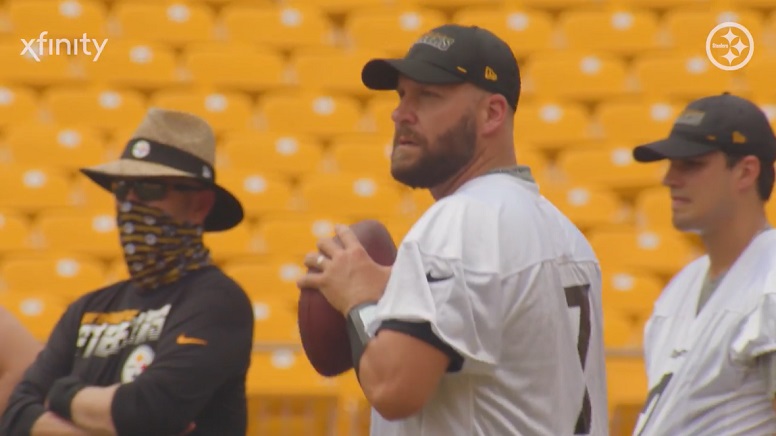A number of things have changed since last year for the Pittsburgh Steelers. None are as significant as the change at offensive coordinator can be. Matt Canada, the new man in the driver’s seat, has an opportunity to make a dramatic impact on this team this year and going forward, as long as he is up to the job.
By and large, his players have spoken positively about the changes that he has brought, but there seems to be some discrepancy as to how much is different, and the manner in which it is different. Certainly, there is new terminology to learn, but second-year wide receiver Chase Claypool sees continuity with what he’s already learned in his brief time here.
“It’s pretty easy to transition into it, because it’s similar concepts like we’ve been running earlier on last season”, he told reporters last week about Canada’s new offense, “so it’s not too much of a learning curve, and I think it’s nice because we’ll be able to stick with it throughout the season”.
It’s not entirely clear what he means by the final remark, but one wonders if it might not be a reference to Ben Roethlisberger’s suggestion on multiple occasions that they were ‘drawing up plays in the dirt’, a characterization that former offensive coordinator Randy Fichtner disputed, at least in implication.
But Claypool was pretty much the biggest cheerleader for the dirt-gameplan theory, and it may have felt that way to him given the fact that he was a rookie and didn’t have the opportunity to have a lot of practice time due to the pandemic dramatically downsizing the offseason program.
Still, it’s clear that the gameplan was compromised last year fairly often, especially in the middle part of the year, and then down the stretch, which required them to rely upon the no-huddle and have Roethlisberger execute the calls based on what he’s seeing, frequently from five-wide sets.
Theoretically, they don’t want to have to do that this year. It will require better playcalling and execution to make that happen. If we start hearing about plays being drawn up in the dirt, then Canada is going to be in trouble.
But his job isn’t even so much about calling plays, rather putting the offense in situations to succeed, of which playcalling is just one piece of the puzzle. It’s about setting things up, in the short and the long term, within a play and over the course of a game, even over the course of a season.
That is where Fichtner failed, more than anything. And that is where Canada cannot afford to. His players have implied that it’s a priority this offseason, but the proof will be in the pudding.








